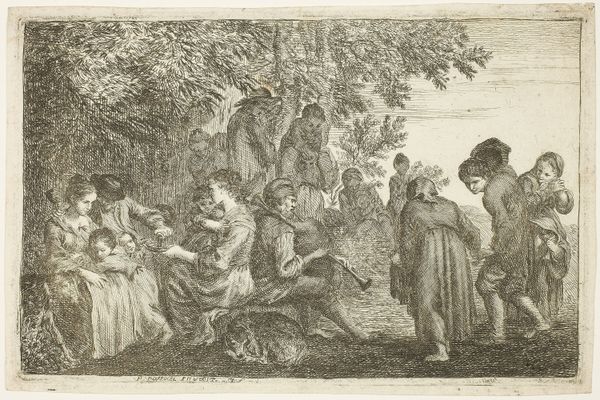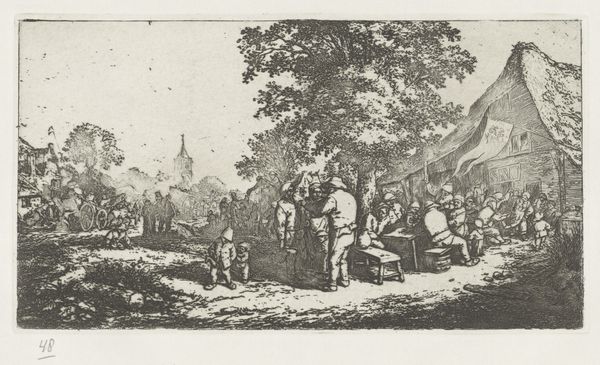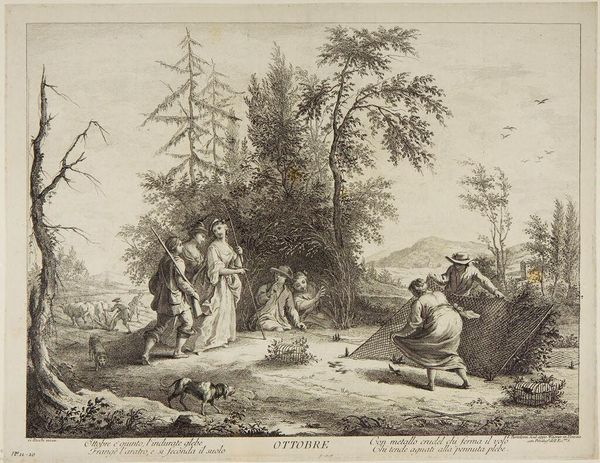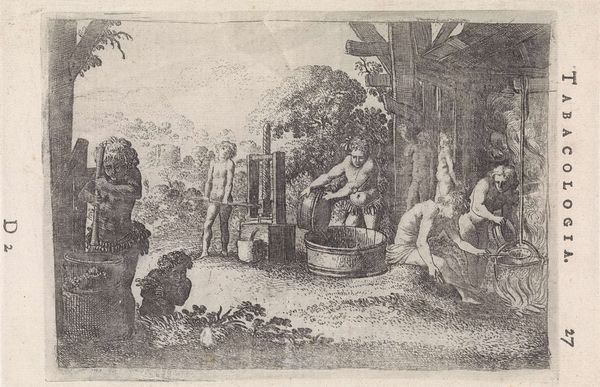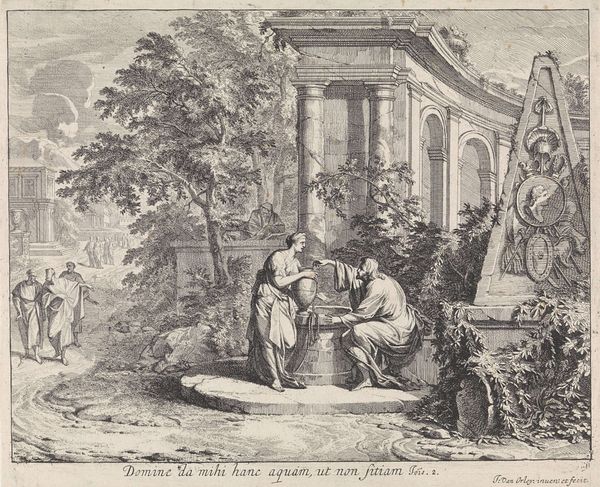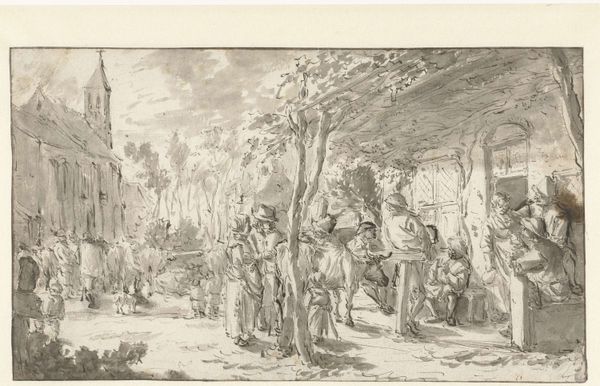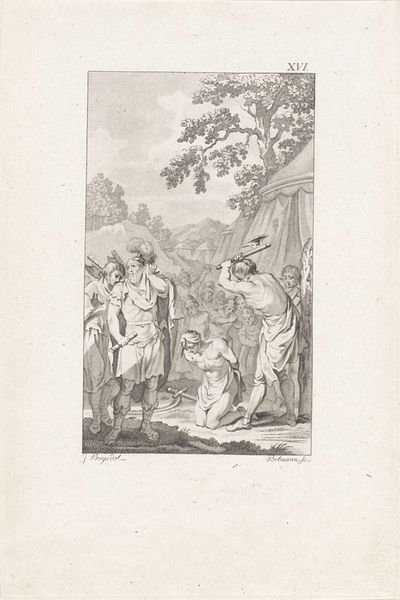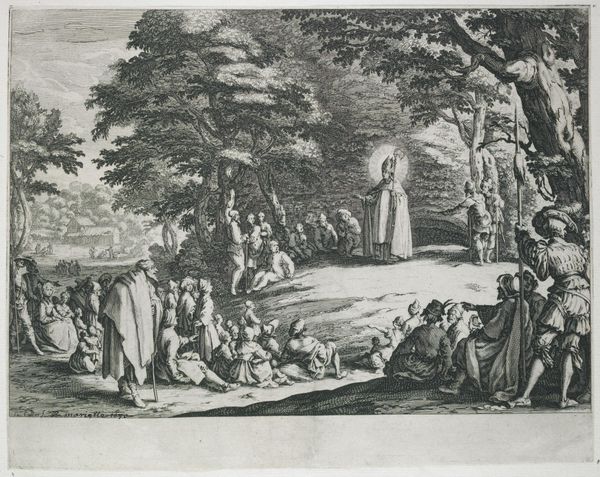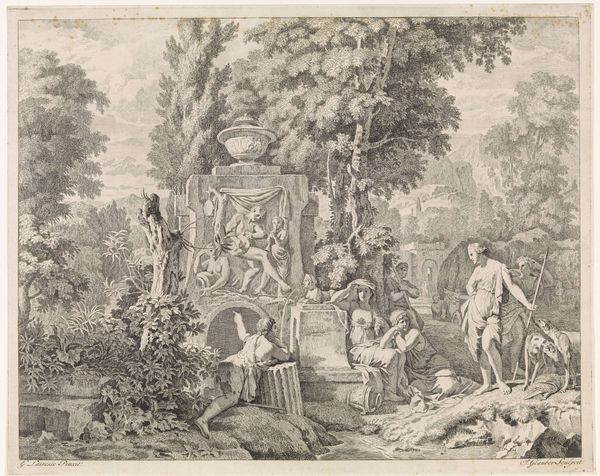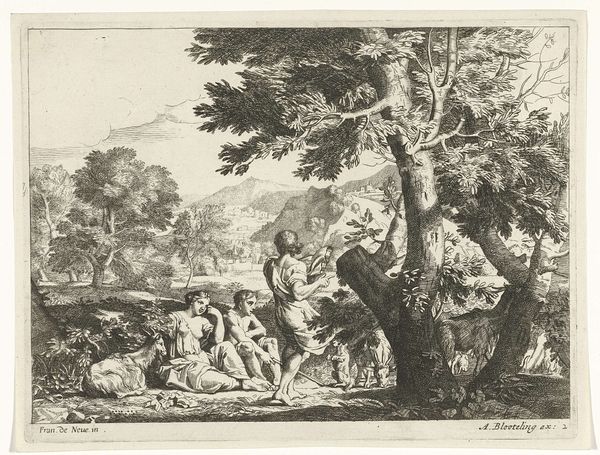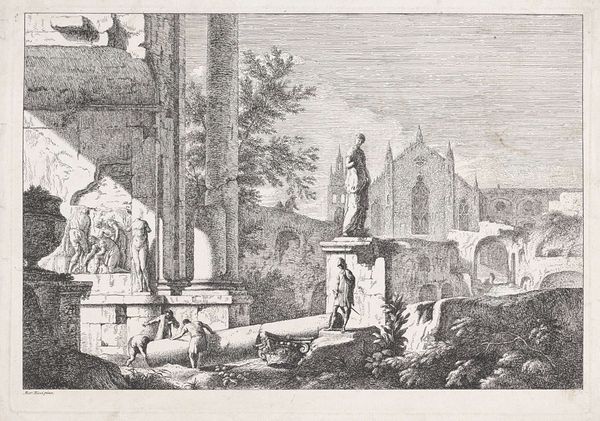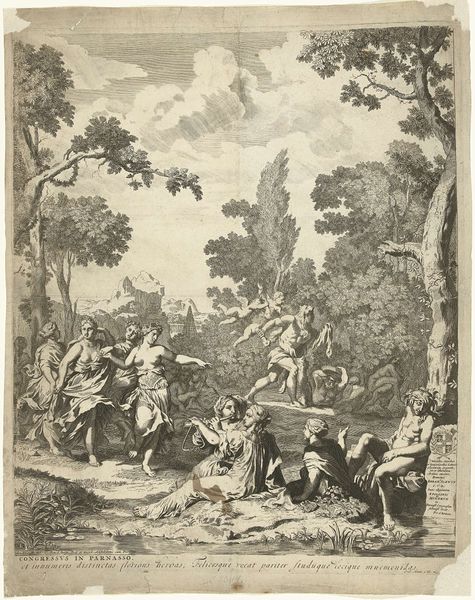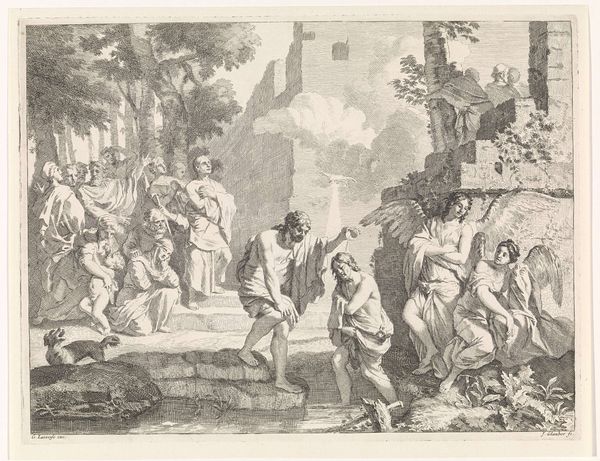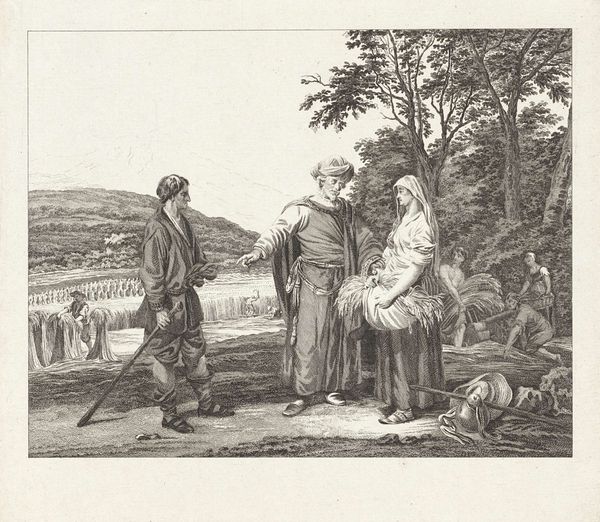
drawing, print, etching
#
drawing
#
baroque
# print
#
etching
#
landscape
#
figuration
#
history-painting
Copyright: Public Domain: Artvee
Curator: This etching by Giovanni Domenico Tiepolo, crafted between 1750 and 1753, is titled "The Episode of the Falling Idol". It is an intriguing narrative scene rendered with a masterful hand. Editor: There’s something melancholic about it, wouldn't you say? The fragmented sculpture set against the family's journey—the stark black and white feel haunting and reminiscent of an old memory. Curator: The piece seems to operate on multiple levels. Tiepolo presents, on the one hand, a pastoral landscape that aligns with the art world's turn to "picturesque" naturalism in the eighteenth century. However, the image also offers an historical commentary regarding the interaction between classical paganism and the emergence of Christian religious culture. Editor: It certainly feels allegorical. A headless statue...it signifies the collapse of old belief systems perhaps? Juxtaposed with a family on the move, invoking biblical journeys—it invites contemplation on faith and transition. It recalls the Flight into Egypt, a symbolic visual, as it communicates vulnerability and seeking of asylum, wouldn't you agree? Curator: Precisely, though one cannot be certain whether the picture cycle to which this print belonged was commissioned by a religious order. Yet, to interpret Tiepolo's intent, it's essential to situate him within the cultural politics of Venice at the time. Here was an independent city-state in decline, seeking to rediscover former glories but challenged by the emergence of "modern" artistic values that prized individuality over more formalized rhetoric. Editor: This element of artistic and institutional negotiation truly enriches our understanding, and invites conversation. But back to symbols--the overgrown setting... It echoes with ideas about history itself as layers accumulating and burying older monuments of thought. A theme about progress? Curator: Perhaps. Or perhaps more ambivalently about history’s costs? These questions of power and belief would resonate through the years to come. Editor: Ultimately, that feeling of poignant displacement continues to haunt us even today. I look at Tiepolo's characters seeking new possibilities amidst the fading idols of a past era. What powerful observations.
Comments
No comments
Be the first to comment and join the conversation on the ultimate creative platform.
